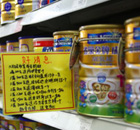Zhu Qiwen
The true heroes behind global recovery
By Zhu Qiwen (China Daily)
Updated: 2009-12-21 06:34
 |
Large Medium Small |
The domestic media last week showed much excitement when the Chinese Worker emerged as a runner-up in Time magazine's Person of the Year list for 2009.
Many newspapers lavished praise on the US weekly for bringing the many toiling Chinese workers into global prominence, an accolade that they deserved but which they were yet to get at home.
Time magazine's wisdom in singling out Chinese workers for their increasing heft on the global stage is appreciable.
Yet, what is more thought provoking is that a group of ordinary working Chinese was in a shortlist that included highly influential world figures.
The huge gap, in terms of celebrity status, between these nominees is eye-catching enough. But, a far more significant contrast lies in the very different solutions they offered to pull the global economy out of the worst recession since World War II.
To put it simply, US Federal Reserve Chairman Ben Bernanke seems to be trying to save the world economy by pumping in more cash while Chinese workers are working hard to improve productivity.
In picking Bernanke as Person of the Year, Time passed over four runners-up including the Chinese Worker and three other high-profile individuals, saying he likely prevented the global crisis from getting worse.
In a sense, that judgment is reasonable against the backdrop of the story of 2009. A largely weak economy could have become weaker if not for his intervention.
Time credited Bernanke with creative leadership that helped to set the US economy on a path to recovery and, hence, prevented a worldwide economic catastrophe.
By taking such extreme measures as cutting benchmark interest rates to near zero, the Fed has practically stanched the panic following the collapse of Lehman Brothers last September.
As major developed countries resumed economic growth and key emerging economies led the global rebound, it does look like the worst of the damage wrought by the global financial crisis may be over now.
Nevertheless, the Fed's role in bailouts of Wall Street and its approach to address the debt crisis is still up for debate.
If it is too cynical to blame Bernanke for not avoiding many of the problems in the first place, it is not so undue to question why the Fed failed so much in defending US jobs while going all out to help Wall Street banks make so-called "quick" profits.
Worse, the long-term implication of Bernanke's approach to solving the current debt crisis is far from certain. Nobody can tell whether the unprecedented liquidity that the Fed pumped into the US and the world economy (since the dollar is the major international reserve currency) will be part of the solution or part of a bigger problem in future.
Compared with the doubtful feat of Bernanke's, the achievements of the Chinese worker appear solid, but not so obvious at individual levels and may even be misunderstood from a global perspective.
The portrait of several Chinese workers that Time magazine gave was not glorious at all. As a group of individuals, which has more often than not borne the full brunt of any economic slump, Chinese workers, especially those who left rural areas to seek urban jobs, have not escaped from the clutches of the global financial crisis.
When the Chinese economy was hit hardest at the beginning of the year, some 20 million farmer-turned migrant workers returned to the villages, jobless.
But even such a hard knock had not prevented the ubiquitous Chinese worker from working really hard in helping the domestic economy to expand by about 8 percent and thus stoke the global recovery.
Unfortunately, these people's contribution to society, as the domestic media pointed out, has long been undervalued at home.
In fact, when the global crisis erupted, they, as a group, were even blamed by some Westerners, including the Fed Reserve chairman, for saving too much and consuming too little and thereby causing a global imbalance.
Yet, despite all the hardship that they have endured and the unfounded criticism they have borne, diligent Chinese workers have just kept doing their bit to help improve the country's productivity.
It was reported that another 10 million farmers have joined the 140 million migrant workers in 2009, giving a much-needed push to productivity in the world's third largest economy.
Time magazine has shown great vision in honoring the Chinese workers, citing their remarkable contribution in the midst of the global crisis.
Will it also be far-sighted enough to highlight the historic contribution of the Chinese Worker in changing the global economic landscape?
E-mail: zhuqiwen@chinadaily.com.cn









